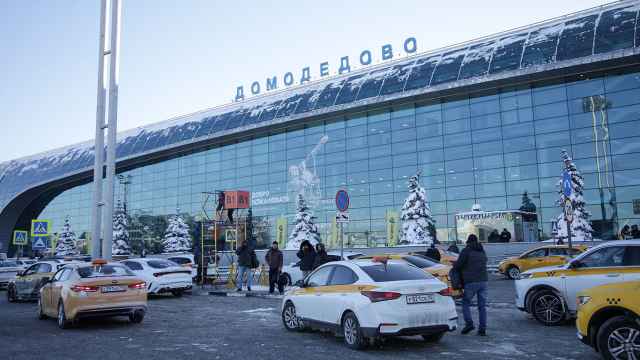Sixty-five years ago, on July 16, 1945, in the desert outside Alamogordo, New Mexico, the first nuclear device was tested. This marked the beginning of the nuclear age.
After that, it didn’t take long for leading scientists and world leaders to start lobbying for a nuclear-free world.
As far back as June 1946 — three years before the Soviet Union became a nuclear power — Moscow proposed to Washington that all nuclear weapons be destroyed by September of that year. The proposal was rejected.
Addressing the United Nations in September 1959, Soviet leader Nikita Khrushchev proposed that the United States and the Soviet Union liquidate all of their nuclear weapons.
Then, in 1986, Soviet leader Mikhail Gorbachev proposed a phased plan requiring all seven nuclear states to eliminate their arsenals by 2000.
Since then, there have been a host of nongovernmental organizations and politicians who have called for freeing our planet from nuclear weapons. Global Zero, which was initiated in December 2008, has proposed a four-phased program for a nuclear-free world by 2030. More than 20 current and former heads of state, including Gorbachev, are signatories to the Global Zero initiative. In addition, former U.S. National Security Adviser Zbigniew Brzezinski, Federation Council Senator Mikhail Margelov and former Foreign Minister Igor Ivanov have signed the initiative.
Unfortunately, there are six obstacles that, if left unresolved, will prevent the vision of a nuclear-free world from becoming a reality.
1. The official members of the “nuclear club” — Britain, China, Russia, the United States and France — as well as the unofficial nuclear powers — Israel, India and Pakistan — have not begun talks on developing a general plan that would define the time frames and the numerical limits for reductions required in each phase.
2. Only two nuclear powers have held disarmament talks — first the United States and the Soviet Union, and now the United States and Russia — without the joint participation of all eight nuclear countries.
3. Moscow and Washington have not yet begun negotiations on the elimination of tactical nuclear weapons. All of Russia’s tactical nuclear weapons are deployed on Russian territory only, while there are several hundred U.S. tactical weapons deployed throughout Europe. This unbalance has to be addressed.
4. Israel, India and Pakistan refuse to sign the Nuclear Nonproliferation Treaty.
5. The United States and other countries have refused to sign the Comprehensive Nuclear Test Ban Treaty.
6. The United States, after withdrawing from the Anti-Ballistic Missile Treaty of 1972, is committed to building and deploying a global missile defense system. This upsets the strategic balance of power since there is a direct and inseparable link between strategic offensive weapons and defensive systems.
During his Prague speech on April 5, 2009, U.S. President Barack Obama expressed doubts as to whether a nuclear-free world could be achieved in his lifetime; U.S. Secretary of State Hillary Clinton told an audience at the United States Institute of Peace on Oct. 21 that it would be impossible for even the next generation of Americans to achieve global nuclear zero.
And yet, despite all these obstacles, the current generation should not stop trying to find a solution to this paramount problem of the 21st century.
I would like to set a new target for obtaining global nuclear zero — July 16, 2045, the 100th anniversary of the tragic creation of nuclear weapons. That is a realistic time frame for the gradual elimination of all nuclear stockpiles in the world.
For this to happen, all six obstacles have to be overcome. In addition, all eight nuclear states should develop a schedule for the phased elimination of nuclear weapons by 2045.
Once all nuclear weapons are eliminated, keeping our planet nuclear-free is possible only if all nations observe the obligation to never again build a single nuclear weapon.
Vladimir Kozin is chief of the foreign journalists’ accreditation section of the Foreign Ministry’s press center. The opinions reflected in this comment are his own.
A Message from The Moscow Times:
Dear readers,
We are facing unprecedented challenges. Russia's Prosecutor General's Office has designated The Moscow Times as an "undesirable" organization, criminalizing our work and putting our staff at risk of prosecution. This follows our earlier unjust labeling as a "foreign agent."
These actions are direct attempts to silence independent journalism in Russia. The authorities claim our work "discredits the decisions of the Russian leadership." We see things differently: we strive to provide accurate, unbiased reporting on Russia.
We, the journalists of The Moscow Times, refuse to be silenced. But to continue our work, we need your help.
Your support, no matter how small, makes a world of difference. If you can, please support us monthly starting from just $2. It's quick to set up, and every contribution makes a significant impact.
By supporting The Moscow Times, you're defending open, independent journalism in the face of repression. Thank you for standing with us.
Remind me later.





